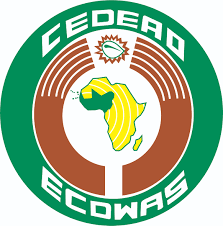ECOWAS Says Mali’s Junta Longevity Risky To West Africa
The Economic Community of West African States (ECOWAS) has rejected the timeline for election by the Malian Military Authorities, vowing to keep sanctions on the West African nation.
According to ECOWAS, accepting the proposal of the Malian Military Junta as it stands would pose a major risk to Mali and the entire. regoin.
The regional organisation had on January 10, 2021, imposed stiff sanctions on Mali following a coup in August 2020, when members of the Malian military seized power from President Ibrahim Keita, Bah N’Daw, Mali’s former defense minister, was later made president of the country’s new transitional government, while Assimi Goita, leader of the military junta, was announced, vice-president.
However, in June 2021, the transition was again botched when Assimi Goita declared himself president in another coup, accusing the interim president Bah N’Dawand the then Prime Minister Moctar Ouane of trying to sabotage the country’s transition.
The junta proposed a five-year timeline to transition into a civil rule, a date the regional bloc kicked against, noting that “the proposal implies that the transition will last for a total of five and a half years, which is longer than a normal constitutional and presidential term in Mali and in the Region.”
In a notice on Sunday to clarify reasons for its earlier sanction on Mali, ECOWAS said, “it’s only calling on the Military Transition Authorities to allow the Malians to choose their leaders through democratic elections.
“Consequently, from September 2020, the transition process went on smoothly. The transition government of President Bah N’Daw provided a timetable on the basis of which it took steps for the conduct of elections on the agreed date of 27 February 2022. A local monitoring committee comprising ECOWAS, African Union, United Nations, Ghanaian and Nigerian Ambassadors was set up in Bamako to support the transition locally.
“Unfortunately, following the latest coup d’état of 24 May 2021, the dynamics and objectives of the new Military Transition Authorities changed radically. They no longer considered respect for the electoral timetable as a priority, resulting in a clear breakdown in the implementation of activities that should lead to elections for a definitive end to the crisis.
“In light of this situation and given the fact that the electoral timetable may be in jeopardy, the ECOWAS Mediator for Mali visited Bamako to discuss the new electoral timetable put forward by the Military Transition Authorities for the conduct of elections. The new timetable, initially expected in September 2021, was finally communicated to ECOWAS only on 31 December 2021, after the National Conferences, with a request to extend the military transition by five (5) years. Noting that this proposal was totally contrary to the commitments and agreements on the substantive issue, and in violation of the legal and regulatory provisions; and noting also that the approval of such a timetable could have dire consequences for the stability of Mali and the Region and anxious to find a concerted solution, ECOWAS requested its Mediator to return to Bamako on 5 January 2022, to urge the Military Authorities to review the timetable. In response, the lMalian Authorities proposed, on 8 January 2022, to extend the military transition by 4 years, after having already spent 18 months in power.
According to ECOWAS, “the military authorities cite the need for reforms as an excuse to extend the transition and remain in power without democratic elections. Reforms are necessary and indispensable for any country to progress, be it in political crisis or otherwise. Implementation of reforms is a continuous and long-term process carried out by successive governments in order to adapt to the new conditions they face. These reforms cannot therefore be a prerequisite, or even an indispensable condition for the conduct of elections. Furthermore, some reforms must be undertaken by legitimate governments that have been elected by the
people.
ECOWAS explained that, “Sanctions are instruments to make Member States respect their voluntary commitments regarding their membership of the Community. Sanctions are softened, or even lifted, as soon as the Transition Authorities give tangible proof of progress in preparations for the elections. Sanctions have been imposed on Liberia (1996), Sierra Leone (1997), Guinea (2009), Cote d’Ivoire (2010), Niger (2010), Guinea Bissau (2012), and the Standby Force activated in The Gambia (2017). This has contributed to the restoration of democracy.”
“Accepting the proposal of the Malian Military Authorities as it stands would pose a major risk to Mali and also a serious risk of destabilisation for the entire West African region, given the precedence thus created. The Community cannot accept such a
a practice which, as well as creating instability, would constitute a major setback in all respects.
The body said, it “remains very attentive to the evolution of the situation, and is available and open to dialogue to accompany Mali towards a return to constitutional order through credible and transparent elections, organised within a reasonable and acceptable timeframe.”


